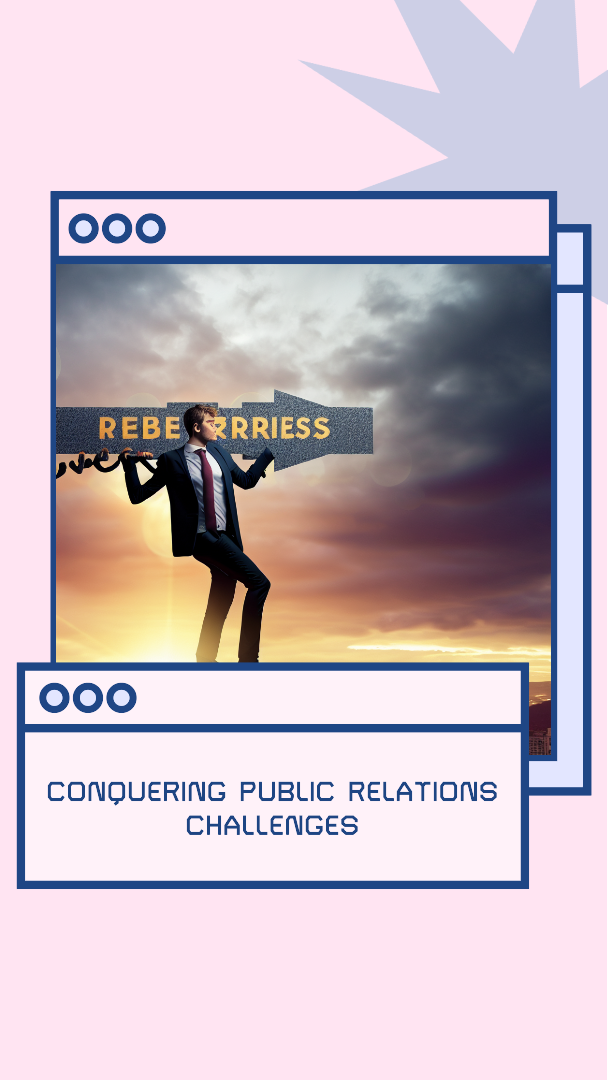A strong and resilient brand is a crucial asset that may decide a company’s success or failure in the ever-changing commercial world.
Why is brand resilience important in today’s business landscape?
A brand’s level of brand resilience determines its ability to endure and thrive in the face of challenges. Brands that can successfully handle crises and preserve their image are more likely to win back the trust and loyalty of their customers in a media and communication landscape that is continually developing.
A brand’s reputation is based on both its goods and services and its prowess in navigating and overcoming problems in public relations.
In this post, we’ll explore the tactics and methods that companies may use to develop and sustain brand resilience while successfully handling PR difficulties.
Understanding Brand Resilience

Brand resilience is the ability of a brand to adjust, recover, and even flourish in the face of difficulty. Adversity may come in various shapes and sizes, from scandals and unfavorable media coverage to reactions on social media and product recalls. Developing brand resilience involves a combination of proactive measures and strategic responses that help a brand withstand these challenges without compromising its core values and reputation.
Proactive Strategies for Building Brand Resilience

Clear Brand Identity
A well-defined brand identity is the foundation of resilience. Companies should grasp their values, goals, and vision well since they will act as a compass during difficult times.
Stakeholder Engagement
A network of support may be built during trying times by making strong connections with stakeholders, including clients, staff, investors, and communities. Engage with stakeholders regularly and authentically to build trust and loyalty.
Crisis Preparedness
Develop a comprehensive crisis management plan that outlines potential risks, scenarios, and appropriate responses. Regularly review and update this plan to ensure it remains relevant and practical.
Transparency and Authenticity
Open and honest communication is paramount. Being transparent about mistakes and challenges demonstrates accountability and can help prevent the escalation of minor issues into major crises.
Tackling Public Relations Challenges Effectively

Swift Response
In the age of social media, public relations challenges can escalate rapidly. A prompt and well-thought-out response can help mitigate the damage and show that the brand takes the issue seriously.
Empathy and Apology
If the brand has made a mistake, offering a sincere apology and expressing empathy can go a long way toward rebuilding trust with customers and stakeholders.
Active Listening
Monitor social media and other platforms to understand public sentiment and concerns. This allows the brand to address issues before they spiral out of control.
Storytelling
Use storytelling to humanize the brand and connect with audiences on a deeper level. Share narratives that highlight the brand’s values and positive impact, which can counterbalance negative perceptions.
Rebuilding Trust
Implement corrective actions and demonstrate a commitment to change. Actions often speak louder than words, and consistent efforts to rectify mistakes can rebuild trust over time.
Case Studies in Brand Resilience
Several brands have navigated public relations challenges effectively, showcasing brand resilience.
Tylenol (Johnson & Johnson)

In 1982, Tylenol faced a crisis when tainted capsules led to several deaths. Johnson & Johnson’s swift response, product recall, and revamped packaging set a benchmark for crisis management and brand recovery.
Starbucks

The company faced backlash after an incident of racial profiling in one of its stores. Starbucks responded by closing stores for bias training and implementing measures to prevent such incidents in the future.
Conclusion
In a world where information spreads rapidly and public opinion holds significant power, building a resilient brand is a necessity, not an option.
By proactively establishing a strong brand identity, fostering stakeholder relationships, and developing effective crisis management strategies, businesses can weather public relations challenges while safeguarding their reputation and growth prospects.
Remember, a resilient brand not only survives adversity but emerges stronger from it.
FAQ’s
What are some common public relations challenges that brands face?
Public relations challenges can include negative media coverage, social media backlash, product recalls, scandals, legal disputes, and issues related to employee behavior. These challenges can quickly escalate and damage a brand’s reputation.
How can a brand proactively build resilience?
To proactively build resilience, a brand should have a clear identity, engage with stakeholders, develop a crisis management plan, and emphasize transparency and authenticity in its communication. By doing so, the brand establishes a strong foundation to navigate challenges effectively.
How should a brand respond to negative media coverage or social media backlash?
A brand should respond swiftly and thoughtfully. Acknowledge the issue, take responsibility if necessary, and offer a genuine apology. Active listening, addressing concerns, and outlining corrective actions can help mitigate the damage and rebuild trust.
Can storytelling really help overcome public relations challenges?
Yes, storytelling can be a powerful tool. Sharing narratives that highlight the brand’s values, positive impact, and efforts to rectify mistakes can create an emotional connection with the audience. Authentic storytelling can counterbalance negative perceptions and show the brand’s commitment to improvement.
Are there examples of brands that have successfully overcome public relations challenges?
Yes, several brands have demonstrated successful brand resilience. For instance, Tylenol (Johnson & Johnson) effectively managed a crisis involving product tampering in the 1980s by recalling products and improving packaging. Starbucks responded to an incident of racial profiling by implementing training and measures to prevent similar incidents in the future.

